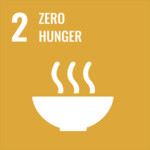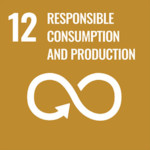
Food Initiative
Promoter: Ellen MacArthur Foundation
Target group: International
Duration: 3 years
ODS: 2. Zero Hunger, 12. Responsible Consumption and Production

The Calouste Gulbenkian Foundation has partnered with a global initiative that promotes the adoption of solutions towards a healthy and regenerative food system.
The Food Initiative is a project of the Ellen MacArthur Foundation, a renowned international organization on circular economy. The initiative has been implemented since January 2018 and its main focus is on the role cities play in the food system. It is expected that, by 2050, more than 80% of food will be consumed in cities. The potential impact of cities in food systems – upstream as well as downstream – is thus undeniable.
The initiative kicked-off with a study analyzing the economic opportunities and general benefits cities can gain by adopting circular economy principles in the food system. The study was launched on the 24th of January 2019 at the World Economic Forum, in Davos. It clearly states the environmental damage caused by food production, which is currently responsible for nearly ¼ of global greenhouse gas emissions (GHG).
From June 2019, and for the duration of three years, the Food Initiative will engage cities from all over the world to implement tailored-made solutions to transform the food system into ae healthier and more regenerative one.
More than 20 cities are currently involved, including Lisbon, Porto and Torres Vedras. The Gulbenkian Foundation is teaming up with the Portuguese cities to promote the necessary efforts and to involve all interested parties. Food brands, producers, retailers, decision-makers, waste managers – all have a role to play and will be challenged to actively participate in the transition towards a true circular food system in Portugal.
The Food Initiative has three working streams that result from applying the principals of circular economy to the food system:
- source food grown regeneratively, and locally where appropriate;
- make the most of food;
- design and market healthier food products.
Find out more on Ellen MacArthur Foundation’s website or download the study to know more about the economic opportunities and environmental benefits associated with this concept.
For more information on the Food Initiative in Portugal please contact Maria do Rosário Palha.
Sustainable Development Goals
This project contributes to the following SDG targets:

Target 2.4
By 2030, ensure sustainable food production systems and implement resilient agricultural practices that increase productivity and production, that help maintain ecosystems, that strengthen capacity for adaptation to climate change, extreme weather, drought, flooding and other disasters and that progressively improve land and soil quality

Target 12.2
By 2030, achieve the sustainable management and efficient use of natural resources
Target 12.7
Promote public procurement practices that are sustainable, in accordance with national policies and priorities
